CCCEU, CEIS Co-Host Europe-China CEO Roundtable Panel and Jointly launch Report on Development of Chinese NEV Manufacturers in Europe
Europe urged to take a page from China's book on developing green economy "Jaw Jaw is better than trade war"
On June 19, 2024, in Brussels, China Chamber of Commerce to the EU (CCCEU) and China Economic Information Service Shanghai successfully hosted the Europe-China CEO Roundtable Panel and launched "Greening Europe: Report on the Development of Chinese NEV Manufacturers in Europe." The event consisted of three main segments: Keynote Speech, MoU signing and Report Launch, and the Roundtable Panels.
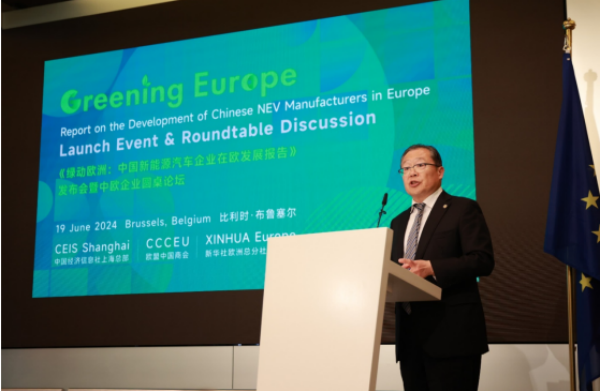
Xu Chen, Chairman of the China Chamber of Commerce to the EU, moderated the keynote speeches. The speakers featured Fu Hua, President of Xinhua News Agency; Brice Lalonde, former UN Under-Secretary-General and President of the French Energy Association; Dick Roche, former Irish Minister for European Affairs and former Minister for the Environment; Eric De Keuleneer, Executive Director of the Belgian University Foundation; and Gwenn Sonck, Executive Director of the EU-China Business Association.
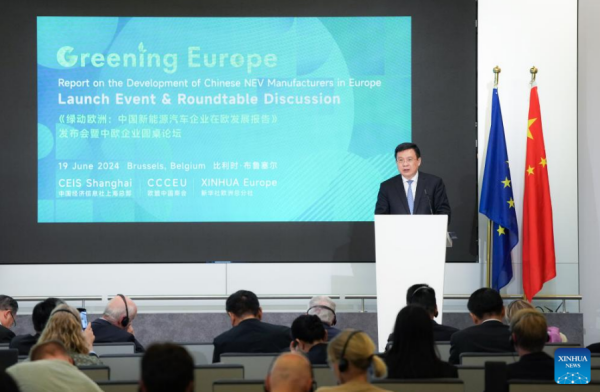
Addressing the event, Mr. Fu Hua said China and Europe are fully capable of achieving mutual benefits and win-win cooperation in the new energy vehicle (NEV) sector, given their commitment to promoting energy conservation, reduction of carbon emissions and harmonious coexistence between man and nature.
As China's national news agency, a global news agency and a high-end think tank, Xinhua News Agency has produced a series of widely followed news reports and think tank reports on the development of China's NEV industry and China-Europe cooperation in the NEV sector, Fu said. The report released this time has analyzed the global demand for NEVs and summarized the development and competitive advantages of China's NEV industry, offering valuable references for China and Europe to strengthen technology cooperation, policy exchanges, supply chain collaboration and investment, he said.
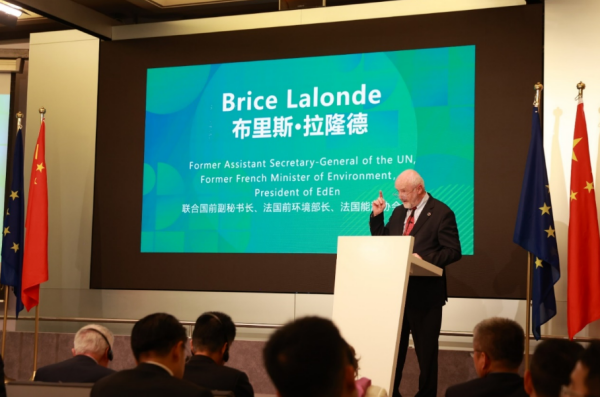
Calling China's leadership in decarbonization industries "a path to follow," former Assistant Secretary-General of the United Nations Brice Lalonde said China has accumulated productivity gains in the NEV sector and covered all stages necessary in this industry.
"We must seek to collaborate with China," noted Lalonde, who is also president of EdEn, an association of companies committed to decarbonization in France and Europe. "The last thing we need is a trade war ... Engaging in bilateral discussions to address the complexity of issues is preferable," he stressed.
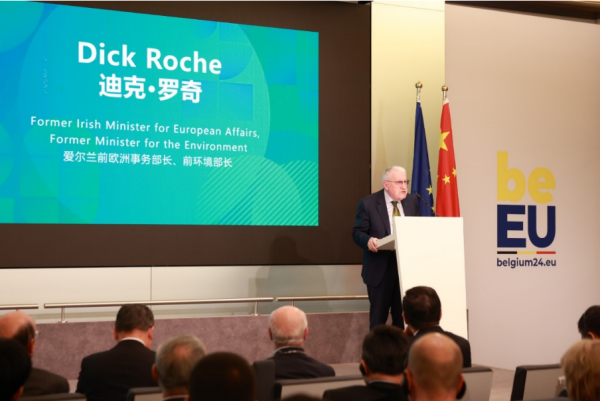
In his speech, Roche said that technological change will be a key driver of the green and digital transition in Europe. Like it or not China happens to be a leader in technologies that are vital if Europe is to progress towards carbon neutrality. The logical thing for Europe to do at this point is to recognize that reality and to sit down with China and any other potential partners to hammer out solutions for the ideological, political and administrative differences that stand in the way of progress. As in that case technologies developed in China are needed to deliver the Green Deal. The logical thing for Europe to do at this point is to recognize that reality and to sit down with China and any other potential partners to hammer out solutions for the ideological, political and administrative differences that stand in the way of progress. "To recycle a phrase, jaw jaw is better than trade war," he said.
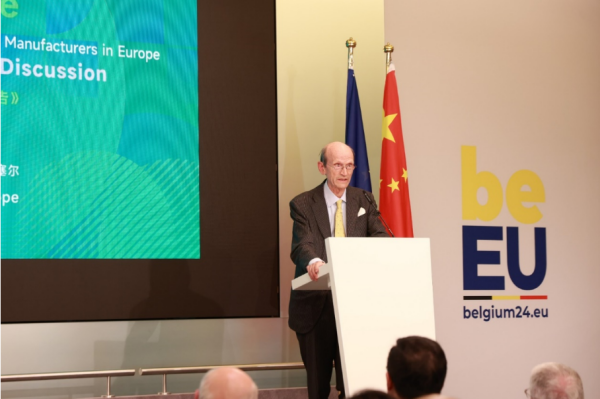
Prof. Eric De Keuleneer said: The tariffs announced by the EU Commission on the import of Electrical Vehicles (EV) from China have become a very visible element of the trade tensions between the EU and China.Tariffs are usually not the best way to handle trade tensions, and these particular tariffs seem counterproductive for many within the EU : let us mention certainly consumers who will have to pay them, and a bit more surprisingly many EU automobile manufacturers whose own exports of EV's from China to the EU are thereby discouraged, and whose exports in general from the EU to China could be threatened by retaliatory tariffs from China. There could still be competition between EU and Chinese car manufacturers, but probably on a better footing, and with a globally more competitive market, and more affordable EV's for European consumers. Experience tells us that tariffs have rarely had economic benefits, and often many unintended consequences. Open trade and cooperation have usually been much more beneficial.
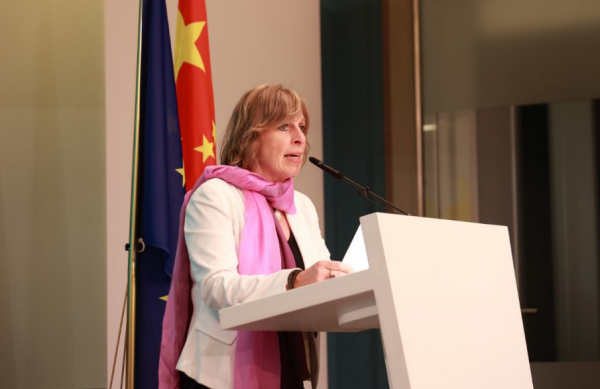
Gwenn Sonck believes that climate change, environmental protection and decarbonization have remained a cornerstone of our collaboration. Cooperation between China and Europe is a necessity to achieve carbon neutrality goals. Chinese NEV manufacturers in the EU not only contribute to a faster green transition in the EU and the world but they also create a reasonable amount of employment in the respective countries. A trade war serves no one. Climate change is the biggest challenge that all of us must face, and only by taking consistent, coordinated, and urgent action can we achieve victory.
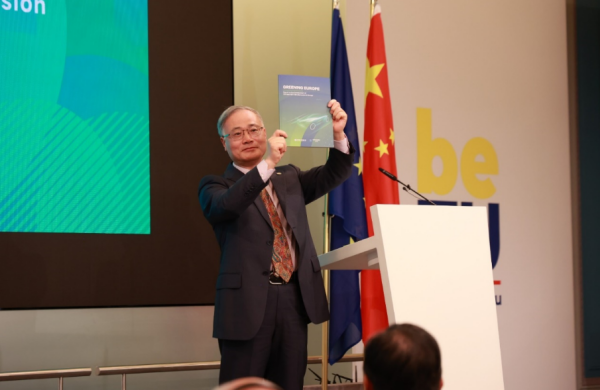
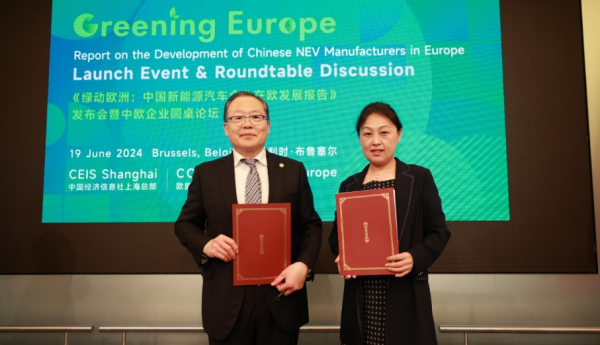
Subsequently, under the moderation of Fang Dongkui, Secretary General of the CCCEU, Mr. Xu Chen, and Ms. Li Yue, Vice President of CEIS, jointly signed a Memorandum of Understanding for cooperation between the CCCEU and the Shanghai headquarters of CEIS.
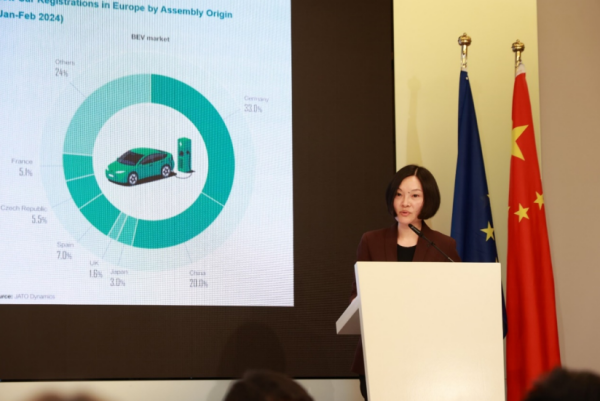
Ji Lei, Vice President and General Manager of CEIS's Shanghai headquarters, presented the key findings of the "Greening Europe: Development Report on Chinese NEV Manufacturers in Europe." This report, developed from surveys, in-depth interviews, and field visits conducted by the CCCEU and CEIS in April and May, involved over 30 Chinese enterprises in the NEV sector.
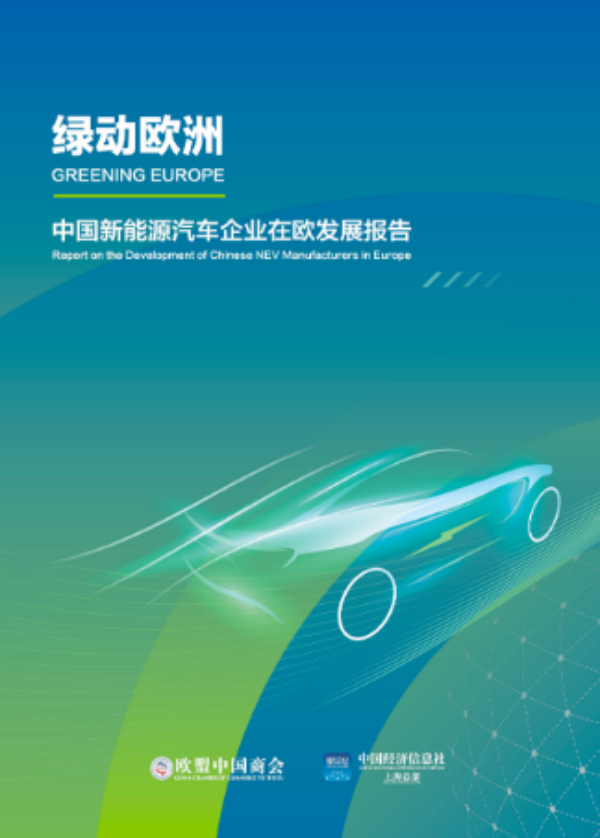
The report indicates that following the EU's announcement of the anti-subsidy investigation, a significant majority of surveyed Chinese enterprises experienced adverse effects. Specifically, 73% reported decreased sales, and 67% noted a decline in brand reputation within the European market. Moreover, 83% of these enterprises stated that their European partners expressed concerns regarding cooperation, leading to reduced enthusiasm and cooperation from various dealers and leasing companies. Additionally, 82% reported a decrease in confidence for future investments in Europe, while 72% highlighted concerns among their European employees about job security.
Following that, the event convened a roundtable panel where representatives from enterprises and organizations including China Merchants Bank, SAIC, NIO, Deloitte, Clifford Chance, Baker McKenzie, Botree Recycling, China Association of Automobile Manufacturers (CAAM), Belgian law firm DALDEWOLF, and Alber & Geiger participated in discussions.
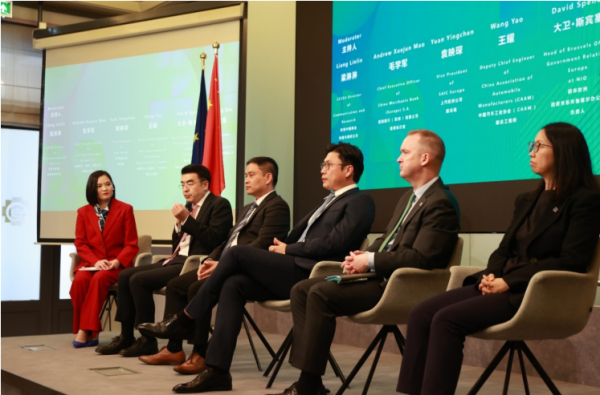
The first sub-panel, led by Liang Linlin, Director of Communication and Research at CCCEU, centered on "Promoting China-Europe Green Economy Trade." Xuejun Mao, CEO of China Merchants Bank (Europe) S.A., emphasized that green trade is not a zero-sum game, advocating against imposing tariffs on electric vehicles as a solution to climate change. Financial institutions aim to promote green trade for social development and value creation. Yingchen Yuan, Vice President of SAIC Europe, highlighted SAIC's substantial R&D investment of 150 billion RMB over the past decade, boasting over 26,000 patents globally and significant production and sales volumes, which bolster competitiveness through increased sales rather than subsidies. Wang Yao, Deputy Chief Engineer of CAAM, acknowledged the industry's long road to carbon neutrality and emphasized the early stage of NEV development. He stressed the industry's need for advancements like smarter cockpits, enhanced autonomous driving, and cheaper batteries, rather than tariffs, to foster innovation and competitiveness.
David Spence, Head of Government Relations at NIO's Brussels Office, highlighted NIO's commitment to Europe's ambitious climate goals, especially in decarbonizing the mobility sector. NIO plans to support Europe's green transition by providing crucial infrastructure like battery swap stations.
Dr. Xue Wang, Partner at Botree Recycling, credited China's electric vehicle industry success to collaborative efforts across the supply chain, including OEMs, battery manufacturers, material producers, and recyclers. Chinese companies have focused on cost reduction to offer affordable electric vehicles. Dr. Wang argued against anti-subsidy tariffs on Chinese electric vehicles, citing their detrimental impact on Europe's industrial development.
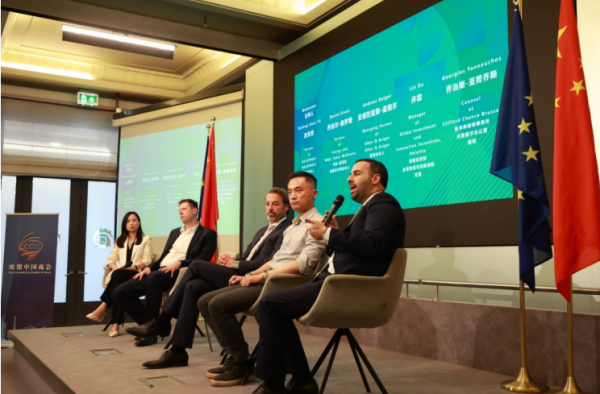
Xiufang (Ava) Tu, Partner at DALDEWOLF, moderated the second sub-panel focused on "Compliance and Strategies in the New Energy Sector." Daniel Orosz of Baker McKenzie, Andreas Geiger from Alber & Geiger, Lin Xu from Deloitte Belgium, and Georgios Yannouchos from Clifford Chance's Brussels Office extensively discussed EU Foreign Direct Investment (FDI) security regulations and strategies for compliance and development within the new energy sector. Their insights were well-received by the audience.
The event drew more than a hundred attendees from diverse political, industrial, academic, and research backgrounds, representing countries including China, Germany, France, Ireland, Hungary, Luxembourg, and Belgium.

 Login
Login Login
Login CCCEU and Gunnercooke Successfully Host Webinar on CSDDD and FLR Compliance to Guide Chinese Businesses
CCCEU and Gunnercooke Successfully Host Webinar on CSDDD and FLR Compliance to Guide Chinese Businesses Cultivating responsible China-EU business leaders essential to tackling global challenges
Cultivating responsible China-EU business leaders essential to tackling global challenges



